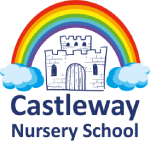CPHSE, RSHE & British Values
What is CPSHE Education?
CPSHE Education (Citizenship, Personal, Social, Health and Economic Education) is a planned programme of learning through which children and young people acquire the knowledge, understanding and skills they need to successfully manage their lives – now and in the future. As part of a whole-school approach, CPSHE Education develops the qualities and attributes pupils need to thrive as individuals, family members and members of society.
What do schools have to teach in CPSHE Education?
- According to the National Curriculum, every school needs to have a broad and balanced curriculum that:
- promotes the spiritual, moral, social, cultural, mental and physical development of pupils at the school;
- prepares pupils at the school for the opportunities, responsibilities and experiences of later life;
- promotes British values.
From September 2020, primary schools in England also need to teach Relationships and Health Education as compulsory subjects and the Department for Education strongly recommends this should also include age-appropriate Sex Education.
Schools also have statutory responsibilities to safeguard their pupils (Keeping Children Safe in Education, DfE, 2019) and to uphold the Equality Act (2010).
At Castleway, we are proud to use the Jigsaw scheme of work to help us deliver our CPHSE curriculum.
What is Jigsaw, the mindful approach to PSHE, and how does it work?
Jigsaw is a whole-school approach and embodies a positive philosophy and creative teaching and learning activities to nurture children’s development as compassionate and well-rounded human beings as well as building their capacity to learn.
Jigsaw is a comprehensive and completely original CPSHE Education programme (lesson plans and teaching resources) for the whole primary school from ages 3-11. Written by teachers and grounded in sound psychology, it also includes all the statutory requirements for Relationships and Health Education, and Sex Education is also included in the Changing Me Puzzle (unit).
Jigsaw has two main aims for all children:
- To build their capacity for learning
- To equip them for life
Jigsaw brings together PSHE Education, compulsory Relationships and Health Education, emotional literacy, mindfulness, social skills and spiritual development. It is designed as a whole school approach, with all year groups working on the same theme (Puzzle) at the same time at their own level. There are six Puzzles (half-term units of work) and each year group is taught one lesson per week. All lessons are delivered in an age- and stage-appropriate way so that they meet children’s needs.
Each Puzzle starts with an introductory assembly, generating a whole school focus for adults and children alike. There is also a Weekly Celebration that highlights a theme from that week’s lesson across the school encouraging children to live that learning in their behaviour and attitudes.
SMSC, FBV, PSED and PSHE overview
How is SMSC integrated into our curriculum beyond Jigsaw?
All the projects that make up the Castleway Curriculum include the four stages: Engage, Develop, Innovate and Express. Each stage promotes and develops specific aspects of SMSC. For example, in the Engage stage, children take part in a Memorable Experience. Historical, cultural and heritage sites form the basis for many of the Memorable Experiences, which helps us cover the SMSC statement about ‘understanding and appreciating the wide range of cultural influences that have shaped their heritage and those of others’.
The curriculum lessons included in these four stages provide a wide range of opportunities for children to acquire the SMSC skills, and these can be specifically highlighted in the optional coverage section of individual lessons on Maestro. How is FBV integrated into the curriculum? Each of the Cornerstones SMSC skills promotes specific Fundamental British Values.
Our curriculum provides children with the opportunity to also cover one of the four fundamental British values: democracy, the rule of law, individual liberty and tolerance and respect. Therefore, the curriculum lessons included in the four stages of Engage, Develop, Innovate and Express promote and develop aspects of both SMSC and FBV. The Democracy Rules standalone mini projects are a series of short projects that supplement our core offering via Jigsaw. The sessions in these projects provide opportunities for children to develop an understanding of what is right and wrong, rules and laws and what it means to live in a democracy. The Yoimoji characters also supplement our curriculum. They are a collection of characters designed to help you promote values-led learning that includes FBV. Yoimoji includes assemblies and extracurricular activities. These resources help you provide opportunities for children to learn about and understand the importance of the values set out in the FBV.
How is PSED and PSHE integrated into the curriculum?
Our Early Years projects also include the four stages of Engage, Develop, Innovate and Express. Opportunities are highlighted in sessions across each stage where you can promote and develop aspects of PSED. Some aspects of PSHE are addressed in the projects for Y1–Y6. For example, in the Express stage, children sometimes speak to a range of people, reflecting on their learning and achievements.
Government Guidance related to Relationships, Sex and Health Education (RHSE)



